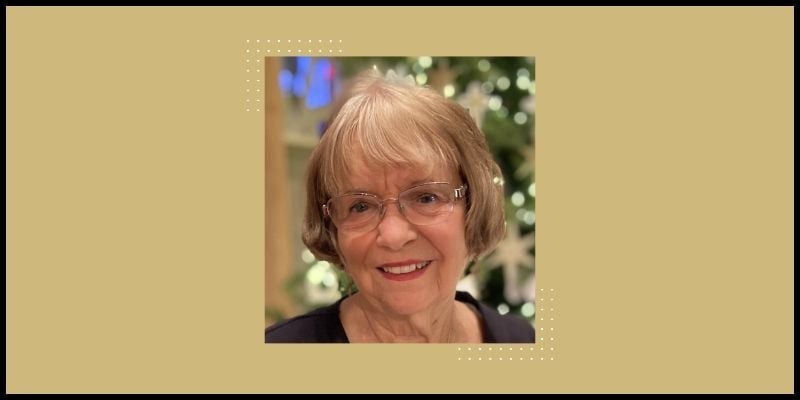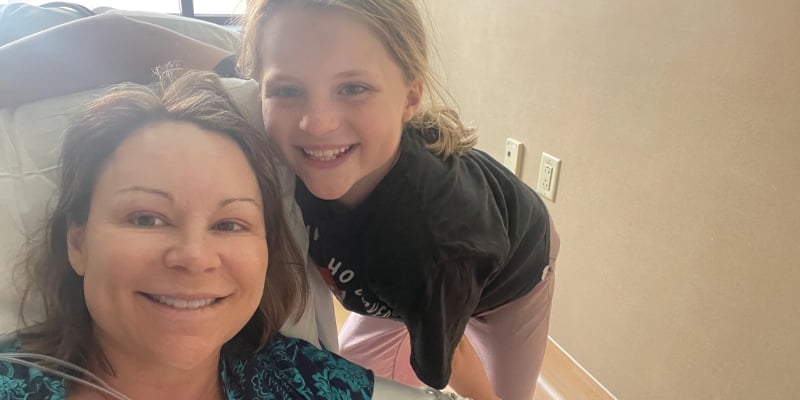Amid the echoes of war and personal devastation, Chauvonne Foston discovered her life's calling. What emerged from her darkest hours wasn't just recovery, but a profound mission to transform the landscape of mental health care for those who have served.
Foston, who survived an improvised explosive device (IED) attack while deployed in Afghanistan only to endure a sexual assault during her hospital recovery, speaks with quiet determination about the pivotal moment that redirected her life's purpose.
“The nurse who cared for me showed me love and compassion while I was recovering and going through so much,” she says. “She did so much for me, and I just knew I wanted to be that same type of person for someone else.”

Chauvonne Foston (in the pink hat) with her family. |
This singular act of compassion planted a seed that would flourish into a remarkable career trajectory. After earning her Bachelor of Science in Nursing from the University of Colorado College of Nursing in 2018, Foston returned to complete a master's degree in nursing from the Psychiatric Mental Health Nurse Practitioner program.
Her evolution from general nursing to specialized mental health care came from witnessing critical gaps in veteran treatment. “At first, I just wanted to be a nurse and be there for other people, but I saw the need for a focus on mental health,” she says. “You can live without a leg, but when your mental health is impacted, it hits differently. It’s hard to live your day-to-day life.”
Asking for Help
What makes Foston's approach uniquely powerful is her firsthand understanding of the mental health battlefield. Upon returning from Afghanistan, she struggled with undiagnosed symptoms that manifested in concerning behaviors.
“I was acting up, but no one knew why. And at the time, I didn’t understand why,” she says.
“Earning my master’s degree is allowing me to provide a more holistic approach and active role in patient care,” she says. “I also have that compassion and empathy for people because I’ve been through what veterans have gone through.”
She was diagnosed with bipolar disorder and was treated at a mental health facility for eight months —a journey marked initially by resistance..
“I was there for a long time because I didn’t want to accept my diagnosis,” she says. “I didn’t want to take my medications, but then I noticed there was a huge difference in my life when I took medications and went to therapy compared to when I wasn’t.”
A Mission Beyond Medicine
While celebrating her recent graduation, Foston continues pushing forward, currently pursuing a Doctor of Nursing Practice (DNP) in Veteran and Military Health Care Leadership. Her previous work at the VA has fueled a passion to return and serve veterans navigating the often turbulent waters of mental health challenges.
Drawing from her dual perspective as both a healthcare provider and veteran, Foston offers a powerful message to service members hesitant to seek help: strength lies in vulnerability.
“Physical wounds can heal, but mental wounds take a lot more time,” she says. “They’re more ingrained…and they dig more at you and can have a lasting impact, especially if someone doesn’t get treatment. I became a nurse because I want to witness the transition of seeing a patient go from their weakest moments to a place of strength and healing.”
This commitment to holistic care reflects Foston's deeply personal understanding of both military service and recovery.
"Earning my master's degree is allowing me to provide a more holistic approach and active role in patient care," she says. "I also have that compassion and empathy for people because I've been through what veterans have gone through."
In a healthcare landscape often criticized for its gaps in mental health support, particularly for veterans, Foston represents a new generation of providers whose personal journeys inform their professional practice. Her story isn't just about individual triumph over trauma, but about transforming the system from within, ensuring that the next wounded warrior receives the compassionate care that once saved her.


